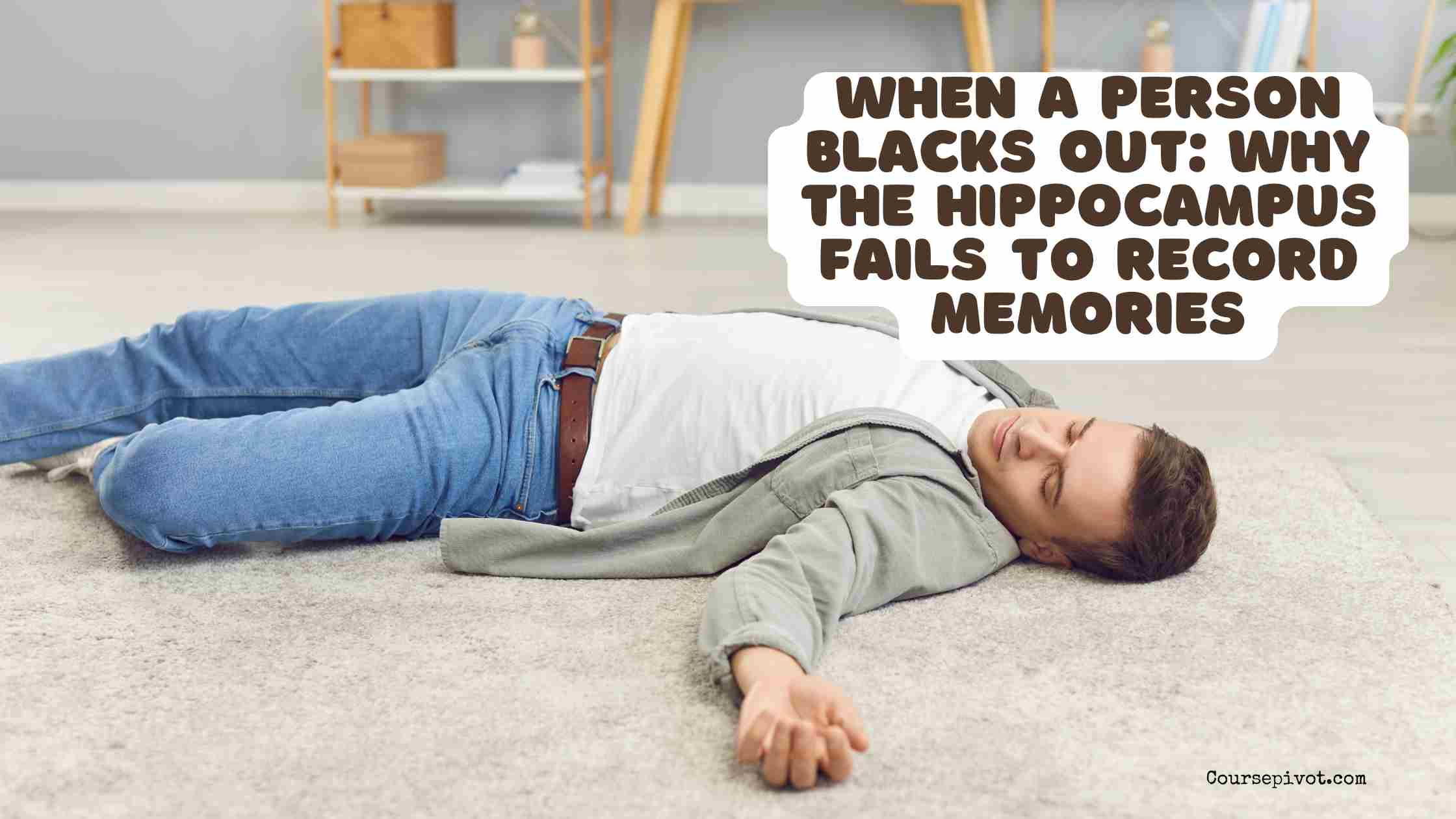
When a Person Blacks Out: Why the Hippocampus Fails to Record Memories
Have you ever wondered what happens in the brain when a person blacks out from drinking? Alcohol-induced blackouts can leave gaps in memory, making it impossible to recall events. This blog explores why the hippocampus becomes unable to form memories during a blackout, shedding light on the science and risks. Understanding this phenomenon is key to promoting mental wellness and safer choices.
Table of Contents
What Is an Alcohol-Induced Blackout?
A blackout occurs when a person consumes enough alcohol to impair brain function, leading to loss of memory for events that occurred. Despite being awake and active, the person cannot form memories due to alcohol intoxication. About 50% of college students report experiencing blackouts, per health studies, highlighting its prevalence. This state isn’t unconsciousness but a failure of memory creation.
During a blackout, the hippocampus, a brain region critical for creating memories, is disrupted. The person may seem coherent, talking or dancing, yet their awake brain cannot store new information. This creates a gap in memories, often discovered later. It’s a key sign of excessive drinking and a wake-up call for health.
How Alcohol Impairs the Hippocampus
The hippocampus plays a role in transferring short-term experiences into long-term memories. Alcohol impairs this process by disrupting neural communication, blocking the transfer of memory events. High blood alcohol levels, often above 0.15%, can trigger this, per neuroscience research. The brain blackout leaves the person unable to recall what happened.
For example, someone might party for hours but wake up with no memories of the night. This isn’t forgetfulness but a failure of the hippocampus to record events that occurred. The alcohol-induced effect is temporary, but repeated blackouts may harm brain health. Protecting the hippocampus is vital for mental wellness.
Why Blackouts Are a Key Sign of Risk
Alcohol-induced blackouts are a red flag for dangerous drinking. They signal that alcohol has overwhelmed the brain, causing more than just loss of memory. Other symptoms, like irregular breathing or cool, pale skin, may accompany severe alcohol intoxication, per health flashcards on platforms like Quizlet. Recognizing these signs can prevent harm.
Blackouts also increase vulnerability. A blackout person may make risky decisions, like driving, without recalling them later. About 20% of blackout cases involve accidents or injuries, per public health data. Awareness of these risks encourages safer habits and protects health.
Factors That Influence Blackouts
Several factors make alcohol-induced blackouts more likely:
- Drinking speed: Consuming much alcohol quickly spikes blood alcohol levels.
- Empty stomach: Not eating certain foods before drinking speeds alcohol absorption.
- Gender: Women may experience blackouts at lower alcohol levels due to gender differences in metabolism, per medical studies.
- Tolerance: A person with lower tolerance faces higher risk.
For instance, a woman drinking rapidly without food might black out after three drinks, while a man might need five. These factors highlight why moderation matters. Understanding them helps prevent brain blackout episodes.
Long-Term Risks of Repeated Blackouts
Frequent blackouts can harm the brain beyond temporary loss of memory. Repeated alcohol-induced episodes may weaken the hippocampus, making it difficult to form memories even when sober, per neuroscience studies. This can affect learning and mental wellness over time. The brain needs care to stay sharp.
Chronic blackouts also increase the risk of alcohol dependence. About 30% of frequent blackout sufferers develop drinking problems, per addiction research. Protecting the person’s brain means limiting alcohol and seeking help if needed. Early action preserves health and memory.
Practical Tips to Prevent Blackouts
To avoid alcohol-induced blackouts and protect your hippocampus, try these steps:
- Pace yourself: Sip drinks slowly to keep alcohol levels low.
- Eat before drinking: Certain foods, like protein-rich meals, slow alcohol absorption.
- Stay hydrated: Alternate alcohol with water to reduce intoxication.
- Know your limits: Stick to 1–2 drinks per hour, depending on gender and size.
- Seek support: Use resources like health drugs guides or Quizlet stress tools for education.
These habits reduce the chance of blacking out and support mental wellness. For example, eating a hearty dinner before a night out can make a big difference. Small choices protect your brain.
Why It Matters for Your Health
Alcohol-induced blackouts are more than memory gaps—they’re a warning about alcohol’s impact on the brain. The hippocampus is essential for creating memories, and protecting it ensures long-term health. Understanding blackouts helps you make informed choices, reducing risks like injury or dependence. It’s about safeguarding your person’s brain for the future.
This issue connects to everyday life. Whether you’re a student using flashcards Quizlet to study health drugs or someone navigating social drinking, blackouts affect mental wellness. By prioritizing moderation, you keep your memories and health intact. It’s a small step with big rewards.
Key Takeaways
When a person blacks out, their hippocampus becomes unable to form memories, leaving gaps in memory events due to alcohol intoxication. This brain blackout is a key sign of risky drinking, driven by alcohol impairing neural processes. Factors like rapid drinking, gender, and not eating certain foods increase the likelihood, while repeated blackouts threaten long-term brain health.
Preventing alcohol-induced blackouts starts with practical steps like pacing drinks and eating well. These choices protect the hippocampus and promote mental wellness. By understanding the risks and acting wisely, you can enjoy life without losing your memories.
Cite this article
You can copy and paste your preferred citation format below.
Martin, L. & Arquette, E.. (2025, July 8). When a Person Blacks Out: Why the Hippocampus Fails to Record Memories. Coursepivot.com. https://coursepivot.com/blog/when-a-person-blacks-out-why-the-hippocampus-fails-to-record-memories/



